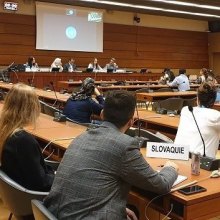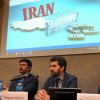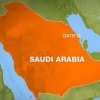
Side Event at the UN on the Subject of Unilateral Coercive Measures
Side Event at the UN on the Subject of...
UN Special Rapporteur: It is necessary to review ways for compensating victims of unilateral coercive measures
The joint side event of the ODVV and the Jameyeh Ehyagaran Teb Sonnati va Salamat Iranian was held at Palais de Nations on 13 September.
According to ODVV public relations this side event was held with the aim of reviewing the impact of unilateral coercive measures on human rights and with the attendance of four international human rights law experts.
The speakers of the sitting were Professor Alena Dohan, the UN Special Rapporteur on the negative impact of unilateral coercive measures on the enjoyment of human rights, Dr. Katayoun Hossein-nejad, International Law Researcher and Rapporteur at Oxford Reports on Human Rights Journal, Dr. Pouria Askari, International Law Expert and Associate.Pro at Allameh Tabatabaee University, and Dr. Rowhani, International Law Expert from New York.
Professor Alena Dohan: it is necessary to review ways for compensating victims of unilateral coercive measures
In this sitting Professor Dohan said: “secondary unilateral coercive measures are not legitimate from international law aspects and it is necessary to review ways to compensate victims of unilateral coercive measures.”
She added: “countries that impose sanctions ensure through imposition of secondary sanctions that other countries observe and impose their sanctions. in fact, secondary sanctions are tools for the implementation of primary sanctions, in other words secondary sanctions are illegal tools for the implementation of measures that were illegitimate from the outset.”
The UN special rapporteur explained: “The imposition of international sanctions is illegal and countries that impose sanctions, through imposition of sanctions, in practice call laws that they have passed as legal.”
At the end she stressed: “what is urgent is that countries must be committed to international law and not follow the laws of countries that impose sanctions.”
Dr. Pouria Askari: Countries of the South must support the adoption of the Convention on the Right to Development draft
Dr. Pouria Askari ,International law expert and Associate Pro. at Allameh Tabatabaee University, was the next speaker who said: “ it is important for global south countries to support the adoption of the Convention on the Right to Development draft, and review the draft declaration on the right to international solidarity.”
He pointed out that: “those who are absolutely against unilateral sanctions have two reasons for their argument, one, according to the UN Charter the Security Council is authorized to impose sanctions and second, unilateral sanctions have human rights repercussions. Unilateral sanctions can have a very destructive human rights impact.”
He added: “according to the new definition for the right to international solidarity, all states must cooperate with each other and protect the world order. The legitimacy of sanctions is related to the world order. States under sanctions must cooperate with each other and UN special rapporteurs, so that they can have a new definition for human rights and international law principles to confront unilateral coercive measures with new legal challenges.’
He explained: “to this aim the opinions of international law experts and NGOs can be useful and it is necessary that more attention is given to the differences in readings of human rights commitments particularly with regards to the right to development and right to international solidarity.”
Dr. Askari said: “unilateral coercive measures are contrary to human rights, because these measures gravely violate the right to development and right to solidarity."
Dr. Hossein-nejad: unilateral coercive measures are against international law and widen the gap between countries of the North and South
The next speaker was Dr. Katayoun Hossein-nejad, International Law Researcher and Rapporteur at the Oxford Reports on Human Rights Journal.
Highlighting obstacles that unilateral coercive measures are in the way of achieving the right to development and the MDG, she reassured that: “unilateral coercive measures are contrary to international law and widen the gap between countries of the North and South.”
She added: “in international law, the right to development is one of human rights and in accordance with international law countries are bound to cooperate. At the same time they have the duty not to prevent the advancement of their own people or people of other countries.”
This researcher further went on: “when the people of a country are under sanctions in fact they are in control of another country and all these countries development activities are impacted by sanctions.”
Dr. Rowhani: unilateral coercive measures cannot be justified as preventive measures, because these measures have a separate definition for themselves
The final speaker of this sitting was Dr. Mohammad Rowhani, international law expert via video link from New York.
He said: “because of the impact on millions of citizens, targeted sanctions must not be imposed on the central bank of a country.”
He added: “measures that affect a vast sector of society cannot be deemed as targeted sanctions, and in the rights oriented model, sanctions must be in coordination with international treaties, bilateral and international customary law. This model determines whether each sanctions regime is legal or illegal.”
Dr. Rowhani stressed that: “unilateral coercive measures cannot be justified as preventive measures, because these measures have a separate definition for themselves, and must not have side-effects.”
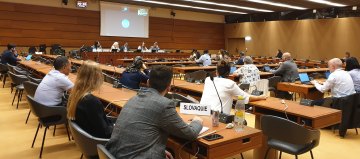
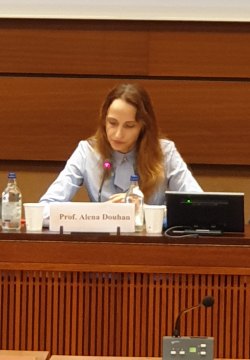
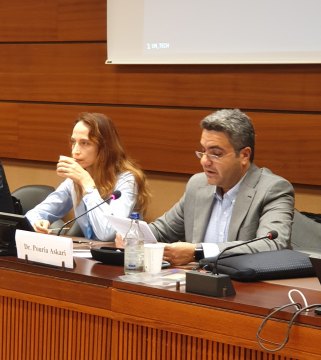
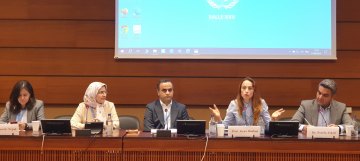
 Reload
Reload